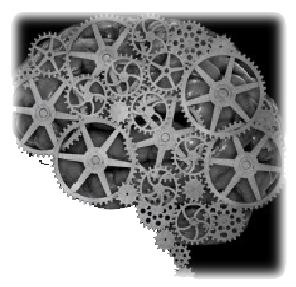CAREER AS A COGNITIVE PSYCHOLOGIST
The brain is an amazing thing. Like many amazing things, it is also quite complex. It can process information and data; store and recall information and data; and influence how we behave and feel. All of these tasks are often done simultaneously or at least within milliseconds of each other.
Cognitive psychology is meant to help us try to understand the human thought process and how we acquire, process, and store information. Professionals in this branch of psychology study a number of mental processes. A few of the most common – and important – mental processes that cognitive psychologists study include memory, perception, and learning. Memory is the ability to recall certain bits of information that were acquired in the past. Our memory helps us in learning, speaking, and interaction. Because of this, memory is also one of the most studied areas in cognitive psychology.
Perception is another area of the human mind that cognitive psychologists study frequently. The term perception refers to the way that each of us see the world, and why we have these particular views. Cognitive psychologists that study perception often have a better understanding of predicting future behavior in certain types of people.


Need Cognitive Psychologists
Cognitive psychology is the scientific study of mind and mental function, including learning, memory, attention, perception, reasoning, language, conceptual development, and decision making. The modern study of cognition rests on the premise that the brain can be understood as a complex computing system.
The Doctoral Program in Cognition offers students the opportunity to pursue original research with our faculty as part of an exciting educational program that emphasizes the theoretical, experimental, and technical foundations of cognition and cognitive science.
The Cognitive faculty have outstanding records of productivity and extramural research support
The Cognitive Area includes two members of the National Academy of Sciences. Areas of special emphasis include: psycholinguistics, language acquisition, memory, visual and auditory perception, sensor motor processes, attention, mathematical models of perception and cognition, decision making, cognitive development, and cognitive neuroscience.
Graduate education is enhanced by close ties with the Centre for Cognitive Science and the Laboratory for Vision Research, and by collaborations with faculty in several related departments, such as Computer Science, Philosophy, Linguistics, as well as with scientists from local industries engaged in basic and applied cognitive research.
Research is conducted in modern laboratories featuring state-of-the-art equipment for experimental studies and computational modelling of cognition, perception, and language.
Students become involved in research during their first semester and complete the basic required courses during the first two years. Students may supplement Psychology courses by choosing electives in departments such as Computer Science, Philosophy, Linguistics, Education, Statistics, Mathematics, and Biomedical Engineering. Candidacy for the doctorate is granted following successful completion of course requirements, a master's thesis, and the qualifying examination.
Of course you would! Problems with memories can translate to problems in life in general. As mentioned above, memory affects a number of different cognitive processes. Without a good memory, we would be unable to read, write, or even speak well. It would also be hard for us to remember our friends’ birthdays, or even faces.
Through their research, cognitive psychologists have discovered several different ways for a person to improve their memory. This can help with social, language, and learning skills. Learning disabilities, for example, can often be overcome with the help of a cognitive psychologist.
Education Requirements to Become a Cognitive Psychologist
As with other psychology careers, a four year Bachelor’s degree is usually the necessary starting point of a cognitive psychology career. While earning psychology degrees, students will often take several different types of psychology courses, such as abnormal and developmental psychology. Courses on research strategies and statistics are also usually recommended, and often required.
Once a student has earned an undergraduate degree in psychology, he can then start working toward more advanced degrees. A handful of psychologists stop their education after earning their Master’s degrees, but most continue their education in order to earn their Doctorate degrees. If you are serious about becoming a cognitive psychologist you can request information from schools in your area via our Find a School Page.
- Dissatisfaction with the behaviourist approach in its simple emphasis on external behaviour rather than internal processes.
- The development of better experimental methods.
- Comparison between human and computer processing of information.